Instructions for Spine Surgery

Information Your Upcoming Surgery
Dr. Myles discussed and ordered surgery for you. We know the decision to proceed with the surgery is stressful. It is normal to feel anxious and to have many questions. We would like to make the surgery preparation process as comfortable as possible by offering this handout to help guide and prepare you and your family for your planned surgery.
Please review the information we have provided. If you have any questions please write them down and we will go over them with you by phone or at your pre-operative appointment or before surgery.
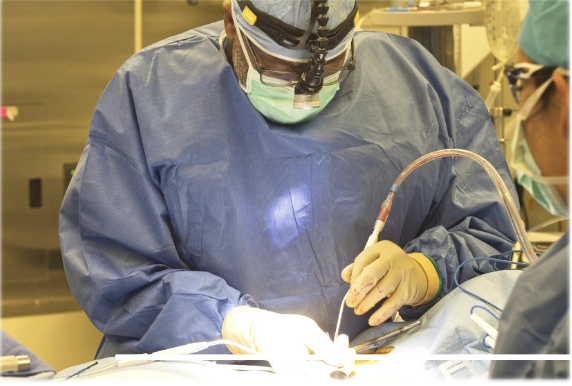
What To Expect Once Surgery Is Ordered
Preparing for Surgery
This is to assist you with any problems or questions you may have before or after discharge from the hospital. These instructions supersede any written or verbal instructions you may get from the hospital.
Spinal Fusion
Surgery that fuses your spinal bones together to reduce pain caused by movement or to provide stability to your spine.
Scoliosis Correction
Surgical correction of spinal deformity. Performing scoliosis surgery stops the curvature from worsening, stabilizes your spine, and corrects the deformity.
Reconstructive Surgery
Revision of a prior spinal surgery that has had a non-union, painful hardware, or transitional syndrome.

- • Once Dr. Myles will order your surgery, your surgery information is then given to the surgery scheduler. The surgery scheduler will call to schedule the necessary steps to be completed prior to the surgery. The surgery scheduler may be reached at 817-288-0084
- • If you need to obtain medical clearance, you will need to get this from your primary care physician. You may need to get additional medical clearances from doctors such as a Cardiologist, Pulmonologist, or other health care providers. The clearance ensures you are in good health and it is safe for you to undergo general anesthesia/surgery. We realize this can be frustrating, but your health status information is necessary to plan a safe surgery for you.
- • Once our office receives your medical clearance our office will contact you to set a surgery date. If we have not contacted you, please feel free to call any time.
- • Your medical information will be submitted to your insurance for authorization of the surgery. Please be aware that this can take anywhere from 3-6 weeks depending on your insurance provider.
- • Once the surgery is authorized by your insurance, we will contact you to set up a pre-operative appointment in our office. At this appointment, you will have a physical exam, sign paperwork, be fitted for a brace, receive prescriptions, if needed, and go over any questions you may have.
Contact Our Office
Our office is here to help. If you have any questions or concerns please contact our office. Our surgery scheduler will be in contact with you to discuss the next steps in getting your surgery scheduled.

Laminectomy & Discectomy
Remove the laminae, which is the back part of your vertebrae, to ease compression on spinal cord or nerves. Discectomy is to remove the herniated or damaged intervertebral disc.
Kyphoplasty
Minimally invasive procedure to treat vertebral compression fractures. Special cement injected into the fractured bone to restore height and stabilize the bone.
Disc Replacement
Remove a damaged cervical disc and replace with an artificial disc

2 Weeks Prior To Surgery
The following instructions should be followed closely except when overruled by specific procedural instructions:
- • NO ASPIRIN or medicines that contain aspirin since it interferes with normal blood clotting.
- • NO IBUPROFEN or medicines that contain ibuprofen since it interferes with normal blood clotting.
- • If you take blood thinners (i.e., Coumadin, Plavix, etc.), please call the prescribing physician as soon as possible to discuss the appropriate time to discontinue these prior to surgery.
- • NO HERBAL MEDICATIONS as many have side effects that could complicate a surgical procedure by inhibiting blood clotting, affecting blood pressure, or interfering with anesthetics (Ginko Biloba).
- • NO DIET PILLS whether prescription, over-the-counter, or herbal as many will interfere with the anesthesia and can cause cardiovascular concerns.
- • NO "MEGADOSES" OF VITAMIN E or multi-vitamin that contain Vitamin E.
- • NO OMEGA-3/FISH OILS avoid any medications that contain this.
- • NO SMOKING because nicotine reduces blood flow and can cause significant complications during healing.
- • You may take Tylenol or generic forms of this drug. Do not exceed 3 grams or 3000mg daily.

1 Week Prior To Surgery
- • DO NOTtake or drink any alcoholic, energy drinks, or take drugs for one week prior to surgery and one week after surgery as these can interfere with the anesthesia and affect blood clotting.
- • DO NOTtake blood thinners (i.e., Coudamin, Plavix, etc.
- • DO report any signs of cold, infection, boils, or rashes that appear before surgery.
- • DO NOT take any cough or cold medications without permission.
- • DO arrange for a responsible individual to drive you home and spend the first 24 hours with you once you are discharged from the hospital.
THREE DAYS PRIOR TO SURGERY
- • DO take a shower with Hibiclens or germ-inhibiting soap such as Dial, Safeguard, or Lever 2000 daily for three days before the surgical procedure.

NIGHT BEFORE SURGERY AND MORNING OF SURGERY
- • DO NOT eat or drink anything (only a small sip of water with medication) after midnight the night before or the morning of your surgery. Also, no gum, candy, mints, or coffee on the morning of surgery. Do not sneak anything as this may endanger you.
- • DO NOT wear nail polish. This interferes with your vitals being monitored during surgery.
- • DO NOT apply any of the following to your skin, hair, or face the morning of surgery: makeup, creams, lotions, hair gels, hair sprays, perfumes, powder, or deodorant. Using any of these products will add bacteria to the skin and increase the risk of infection.
- • DO brush your teeth the morning of surgery, but do not drink or swallow anything.
- DO NOT wear contact lens to surgery. If you do wear glasses, be sure to bring your eyeglasses case.
- • DO wear comfortable, loose-fitting clothes that are easy to slip on and flat shoes.
- • DO NOTbring any valuables or wear any jewelry (no rings, earrings, chains, toe rings, metal piercings, or watches).
- • DO take your pain medications with a small sip of water the morning of the procedure if needed.
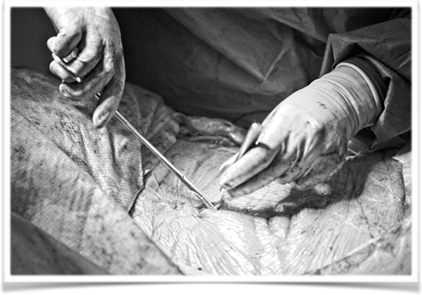
Hospital Stay
You will get an ice machine while you are in the hospital. This will help with your pain and swelling.
Family
You will be in a private room during your stay at the hospital. There is enough room for a family member to stay with you while you are in the hospital. You can ask your nurse for extra blankets and pillows if needed.
Important "Gum"
If you have an anterior approach surgery (through the stomach), we recommend that you chew gum as much as possible. This will decrease your risk of getting an ileus after surgery.

HOSPITAL PRE-OP INSTRUCTIONS
Registration Information
- • A Pre-Admission nurse will call you before your scheduled surgery. An appointment will be made for you to come into the hospital. They will ask you about your health history, surgery history, and allergies. They will arrange any blood test, x-rays, EKG, or any other testing needed prior to surgery.
- • Upon entering, please check in at the registration desk. Have your insurance and identification cards available.
- • A staff member will escort you to the appropriate department.
- • If Dr. Myles orders blood to be on standby for your surgery you will go in the day before surgery to have your blood typed and crossed.
- • We are still testing for COVID currently. You will need to have this done 72 hours prior to surgery.

BATHING INSTRUCTIONS PRIOR TO SURGERY
We need to be sure your skin is as free of germs as possible before surgery or procedure. Thoroughly washing the skin can greatly reduce the number of germs.
Use the special soap called Hibiclens OR anti-bacterial soap like DIAL, which will be given to you at your pre-operative appointments at the hospital or can be purchased at a local drug store. Dr. Myles requests that you take a shower with soap daily for three (3) nights before the surgery, as well as a final shower the morning of the surgery.
BATHING AND SHOWERING TIPS
- • In a shower or tub, wash your body with regular soap and water first. You do not need to wash your hair f you normally do not wash it daily until the night before or the day of surgery. The night before the surgery or the morning of your surgery wash your hair. Wash your hair as usual with your normal shampoo.
- • Rinse your hair and body thoroughly to remove soap and shampoo.
- • Apply the Hibiclens soap to your entire body FROM THE CHIN DOWN TO YOUR TOES, INCLUDING YOUR BACK AND HIPS. DO NOT use near your eyes, ears, face, head, or private areas. Please be aware that Hibiclens can cause PERMANENTblindness and hearing loss if not used correctly.
- • Turn off the water to prevent rinsing off soap too soon. Wash body gently for 5 minutes. Do not scrub your skin too hard. Wash thoroughly with Hibiclens, pay special attention to the areas where the surgery will be done. • DO NOT wash with regular soap after you have used the Hibiclens.
- • Turn the water back on and rinse and body thoroughly.
- • Pay yourself dry with a clean towel.
- • DO NOT use lotion after shower or bath.
DAY OF SURGERY
- • Follow the above directions.
- • Use Hibiclens and coat the surgery area. Allow this to dry and then get dressed!

WHAT TO BRING THE DAY OF SURGERY
- • Prescription medications in original bottles. DO NOT bring pain medication, vitamins, or herbal supplements. DO bring a list of all medications, vitamins, or herbal supplements that you take.
- • Walker, CPAP/BiPAP.
- • Your primary care physician's telephone number and cardiologist's telephone number if applicable.
- • Your pharmacy name and their phone number.
- • Your photo ID and insurance card.
- • Advance directive if you have one (living will, durable power of attorney).

YOUR HOSPITAL TEAM
Hospitalist
Board Certified Doctor that specializes in Internal Medicine. They will manage your medical needs during your stay at the hospital.
Anesthesiologist & CRNA
Board Certified Doctor and nurses that specialize in Anesthesiology. They will manage your airway and, editions while you are having surgery.
OR Staff
There are many members of the health care team that you may not meet. The OR nurse, scrub tech, x-ray tech and anesthesia tech will all help with specified jobs while your surgery is underway.
Nurse
They will do routine nursing assessments and provide a high level of day-to-day care during your stay at the hospital.
Social Services
Will help facilitate communication between hospitals and to other facilities such as rehab, nursing home, and home health to help make sure everyone is on the same page and has what they need to give you proper care.
Important "Pharmacist"
Assistant with your care while in hospital by working with doctors and nursing on your medications
Respiratory Therapy
Post operatively will work with you on your nebulizer breathing treatments and incentive spirometer ordered by Dr. Myles.
Physical Therapy or Occupational Therapy
Will work with you on how to move safely after your surgery. From walking, standing, how to get out of bed and climbing stairs.
Important "Tech"
Assist nursing with your care during your stay.
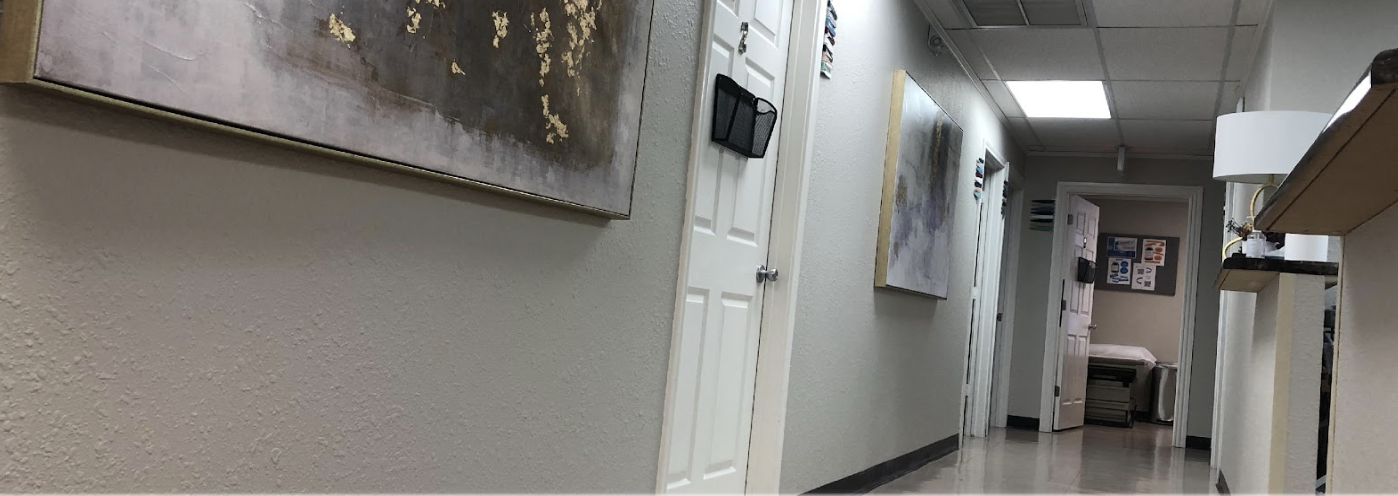
WHAT TO DO AFTER SURGERY
- • DO NOT smoke or use any tobacco products.This includes cigarettes, dip snuff, nicotine patches, and cigars. Tobacco has been shown to decrease fusion rates by up to 60%. Nicotine use is to be discontinued for no less than 6 months after surgery.
- • DO NOT use any anti-inflammatory medications (i.e. ibuprofen, aleve).These medications will decrease your chance of successful fusion. You will be able to resume these medications 10 days after a Laminectomy or 3 months after a fusion. You may take vitamins that have anti-inflammatory properties.
- • DO wear your brace for a total of 3 months.The lumbar or cervical brace is worn for a total of three months. You must wear the brace when you are up for long walks or in the car. The brace does not need to be worn in the house or while sleeping unless otherwise instructed. The brace can be worn over your clothes.
- • DO get up and move The first few months following surgery is a time for frequent rest periods. You may notice that you become tired after normal activities that previously would not have made you tired. This is completely normal. Start by gradually increasing your walking to one mile a day by the end of the month. You should start with 5-minute walks two times a day and slowly progress as tolerated over the next 4 weeks.
- • DO NOT drive until your 2 week post-op appointment.At that appointment you complete the driving test.
- • DO make a follow-up appointment before you leave the office at your pre-op appointment. You will have a follow-up appointment with Dovie at 2 weeks. At that appointment, we will take x-rays if needed and check your wound. You will also be seen 6 weeks, 3 months, 6 months, and 1 year after your surgery.
- • DO NOT remove steri-strips from your incision until you are seen at your first post-operative appointment
- • DO keep dressing on for the first week. The dressings that have been placed on your incisions are waterproof. You can replace these after 7 days.
- • DO NOT shower in hot water or bend over to pick items up, this may cause you to become dizzy or lightheaded and risk falling.
- • DO NOT travel for the first 1-2 weeks following surgery. We would prefer you to not take long car trips. If you must take a trip you will need to stop every hour and take a stretch break.
- • DO NOT lift anything heavier than a gallon of milk for 3 months unless directed otherwise in physical therapy. You should avoid bending, lifting, or twisting motion of the spine.
- • DO start physical therapy at 2-3 months post-op. We will evaluate your readiness for therapy at your post-operative appointments.
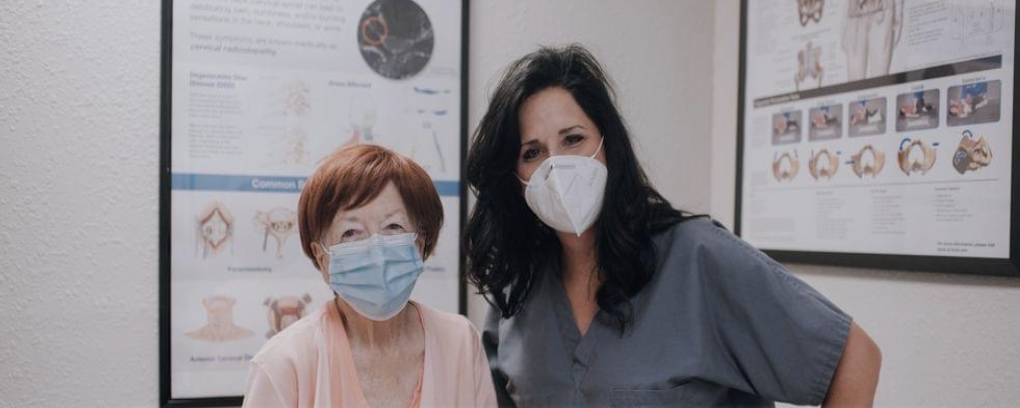
FFREQUENTLY ASKED QUESTIONS
- • Can I Fly? Yes you can fly after surgery. However, we usually request that you wait 3 months before extensive travel. If this is not avoidable we request that you wear your brace throughout the flight.
- • How long will I be in the hospital? Usually you are in the hospital overnight for cervical fusion, laminectomy discectomy, or kyphoplasty. You can expect a 2-3 night stay after a lumbar fusion. If your surgery is staged for two days then you will be in the hospital for about 5 days.
- • When can I go back to work? We suggest that you should plan to be off work for at least 3-6 weeks. If you have a very physical job it will be closer to 3 months.
- • What is the Ice Machine for? An ice machine will be provided for you at the hospital. It is yours to take home. This will help you with your pain and swelling.
- • Can I have sex? Sexual activity is permitted to the comfort of the patient as a general rule. This is usually with you lying on your back as this will protect and support the spine during these activities.
- • How can I sleep at night? You can sleep the normal way that you would sleep. After cervical fusion, you may want to roll up a towel and place it into your pillowcase to help support your neck.
- • Where can I do my physical therapy?We have physical therapy at the Hurst office location or we can provide a prescription to take to a physical therapist near you.
- How do I do scar massage?There will be a scar after the surgery and everyone heals differently. If your wound is healed after 3 weeks you can start scar massage. This will help with the modeling of the scar and provide improved flexibility and appearance. When applying scar massage, use moderate pressure to your comfort level. Make sure that you are sitting or laying down when performing. You can use an over-the-counter pharmaceutical ointment called Prosil, which will decrease scar formation and has been shown to improve scar healing. You can also use lotion, Vitamin E oil, and Emu oil. These can be bought at a local pharmacy or grocery store. When you massage the scar, gently start with two fingers and massage in line with the incision. This will help to de-sensitize the scar before using cross friction. Perform for 2-3 minutes and then take two fingers and massage against the scar up/down for 2-3 minutes. Do this 2-3 times daily. Paper tape across the scar has been shown to help decrease the tension for the wound margins and minimize the scar as well. Please keep your scar covered while in the sun as UV exposure can cause the scar to stay permanently pink or discolored. It takes a full year for the scar to mature.
- • How do I swallow my vitamins without them getting stuck?Try using warm tea, water, or coffee. The warm fluid will help the tablet or capsule slide down.
- • When do I know if I have an infection?Signs and symptoms of wound infection include: increase in redness, swelling, tenderness, and drainage that has not resolved in 4-5 days or the presence of an odor. Fevers of 100.5 F or higher, nausea/vomiting and just feeling bad can be signs of infection. Be sure to observe your dressing daily. If you are concerned about a possible infection, call our office immediately. We are available by phone 24 hours a day Call 817-288-0084 and the office will assist you during business hours or after hours, weekends, and during lunch we have an answering service that will assist you with getting in touch with Dr. Myles or Dovie.
- • What is considered a fever?A fever is greater than 100.5F.
- • After my neck surgery what are some helpful hints?
- • If you have a sore throat try using lozenges, sore throat spray such as Chloraseptic, or try something cold such as ice.
- • A towel rolled up placed at the bottom of your pillowcase where your next rests may give your cervical spine the support needed at night while asleep or at rest.
- • If you're having difficulty with swallowing try placing your chin to your chest. This will help open up your esophagus so you can swallow easier. It is not uncommon to have difficulty swallowing liquids compared to soft or solids.
- • What can I use if I can not take my anti-inflammatory?We have supplements that can help with inflammation and pain. You can use Traumeeltopical cream or oral tablet. Omega 3 fatty acids2 capsules in the morning and 2 at night. The MLS laser can be done in our office post-operatively to help with swelling, inflammation, and pain
- • When do I need a Bone Stimulator and what is it?You will receive a bone stimulator if you nad 3 or more of the following: more than 1 level fusion, smoker, osteoporosis, vascular disease, or diabetes. Bone stimulators assist in bone formation after surgery. This is usually given to you at your 2 week post-op appointment or a local distributor will contact you to bring you the device.
- • How long will I wear the Bone Stimulator?You will wear the Bone Stimulator for a total of 3 months.
- • How can I make my own ice pack?You would be amazed that something as simple as ice will help decrease swelling spasms, and pain. You were given an ice machine at the hospital. You can freeze 8 small water bottles and place 4 bottles at a time into the ice machine so that you don't have to use bags and bags of ice. Please do not apply the ice machine pad directly on the skin, as it may create significant irritation. A simple way to make your own ice pace is to place a mixture of half water and half rubbing alcohol into double-bagged zip-lock bags for freezing. The ice pack should be placed in a moist towel and applied for no longer than 20 minutes on and 20 minutes off.
- • What do I do if I become constipated?The pain medication and muscle relaxers that were prescribed will cause constipation. You should anticipate this and purchase items prior to surgery. We recommend a stool softener or laxatives.
WHEN DO I CALL THE OFFICE?
- • Signs of infection
- • Pain that is not being controlled with oral pain medication.
- • Unable to swallow and find yourself drooling or constant cough with swallowing.

HOW TO ORDER VITAMINS
The vitamins offered here at the Institute of Spinal Disorders are high-quality prescription strength vitamins
We have tried to make getting your vitamins as easy as possible. There are 3 ways:
- You can purchase your Calcium and Vitamin D here today in the office. We have these available at all times at our check-in/check-out windows.
- Go to our website or look up Dr. Myles on the internet and go to our website. At the top, there is a tab "Vitamin Shop". There are two lines on the page. "Vitamin Shop" will guide you to the Metagenics store. "Wellevate" is another store where you can find supplements that are not available at Metagenics. On the Metagenics site: Our recommended bone health products include Vitamin D 10,000 + K and Bone Builder Extra Strength.
- Go to this site here
METAGENICS
- Set up an account.
- You can set up automatic deliveries up to send supplements monthly.
- If your order $49 or set up recurring orders you will get free shipping.
- 20% off on all online orders, applied at checkout.
- Pharmaceutical grade vitamins.
- To access all products on their website click BUY PRODUCTS.
WELLEVATE
- Set up an account.
- 15% off on all online orders, applied at checkout.
- Products that have a silver or gold stamp have been tested by a third party and are a higher quality supplement.

HEALING THE BODY
Although sunlight is a natural source of Vitamin D, essential for good health, many individuals often don't get ample supple of this vital nutrient. D3 10,000 plus K by Metagenics is a dietary supplement that provides the user with a high-potency supply of Vitamin D.
Microcrystalline hydroxyapatite concentrate (MCHC) is a highly absorbable crystalline compound that provides everything found in healthy bones and is backed by more than 30 years of research. MCHC contains naturally occurring calcium, phosphorus, and trace amounts of other minerals, bone growth factors, collagen, and other vital bone proteins. This formula is designed to support bone mineral density and also features vitamin D for enhanced bone health support.
VITAMIN D WITH K2
Research has shown that most individuals in the United States are deficient in Vitamin D. It is our recommendation that post-operatively you take 10,000 International Units of Vitamin D each day along with Vitamin K. After 3 months have passed you may decrease to Vitamin D with K2 5,000 IU daily.
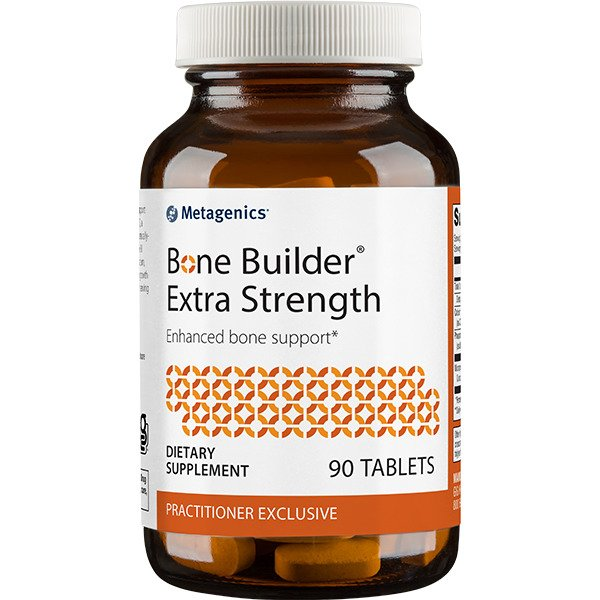
Vitamin D and K2 need to be taken together to aid in directing calcium like a traffic function to go into your bones, making them stronger. K2 also prevents calcium from going to the wrong areas, such as to your kidneys, where it could lead to kidney stones, or your blood vessels, where it could trigger heart disease.
Vitamin K2 helps bind calcium to the bone matrix, leading to increased bone mineral content. Consequently, the skeleton becomes more resistant and less susceptible to fracture. But osteocalcin needs vitamin K2 to function optimally.
Long-term Vitamin K2 deficiency can lead to osteoclasts removing more bone tissue than osteoblasts can build. This will result in a slow and steady loss of bone tissue, eventually leading to porosity, degradation, and weakness of the bones, which could lead to a non-union or the bone not fusing and increase the risk of fracture.

NUTRITION AFTER SURGERY
After your surgery adequate nutrition is necessary to facilitate and improve the healing process. Here at the Institute of Spinal Disorders we take this very seriously and recommend that you follow a nutritional program that promotes the healing process after your spinal surgery.
After a spinal fusion the metabolic demands of your body increase in order to provide adequate energy for healing. Therefore, you will need to supply your body with the proper nutrition to promote the necessary healing. With your metabolic rate up you will need to increase your calories. The caloric demand can double or triple after surgery. We recommend that you eat 5-6 times per day to keep up with your increased metabolism.
Your meals should include lean protein, unprocessed foods, fresh fruits, fresh vegetables, and foods that are high in Omega 3 fatty acids. Avoid any processed and/or fast food, because they contain far fewer necessary nutrients.
You should also increase intake of calcium and vitamin D. These nutrients are used for tissue and bone healing after surgery. In order to build bone, protein is laid down first and then calcium is incorporated into the protein to form bone with the assistance of vitamin D3 and K2.
- What vitamins and minerals do I need to take after surgery? Calcium and Vitamin D with K2.
- How much Calcium do I take a day?After surgery we want you to take 1500mg daily. This is to be split in half with one half taken in the morning and the second half taken in the afternoon. Once you are 3 months post-operative, ladies need to decrease to 1200mg daily. Men will continue at 1500mg daily.
- How much Vitamin D with K2 do I take?We recommend vitamin D3 with K2 10,000IU daily for 3 months. Once you are 3 months post-operative this can be decreased to 5,000IU daily.
- How long do I take with CalciumIf you are a woman over 40 we recommend that you stay on a maintenance dose of 1200 mg daily.
- How do I know how much protein I need after surgery?Take your weight and divide by 2.2 to get your weight in kilograms. Now, multiply your weight in kilograms by 1.5.
For example: You weigh 150lbs divided by 2.2 = 68.1kg. 68.1kg x 1.5g protein = 102 grams of protein daily.

PROTEIN
We recommend protein intake to be increased over the next 3 months. To obtain the amount of protein needed you will need to eat 5 to 6 times a day.
We generally recommend eating foods that are rich in protein such as lean unprocessed beef, pork, chicken, bison, deer, fish, eggs, yogurt, beans, cheese, and tofu. Avoid highly processed foods that contain high amounts of salt, fat, and calories.
We generally recommend a protein shake twice a day to supplement the small protein-rich meals. “Bulletproof” protein is one example of a supplement that will help fulfill your recommendations. You can also eat protein bars or order high-protein and nutrient-rich foods off of “Optavia.” Ask Dovie and she can help get you set up with an Optavia account.
Protein demand is increased after surgery for the following reasons:
- Protein is necessary for rebuilding tissue in surgical wound site.
- Control of edema (swelling). When the blood protein level is low, especially after surgery, fluid leaks out of your vascular system into the tissue incision site and causes significant swelling. The shift of this fluid in and out of the vascular system can negatively affect your heart and lung performance and lead to complications after surgery. Local swelling at the surgical site delays the normal healing process of the incision.
- Bone healing. During bone formation, protein is laid down first. This protein is followed by calcium. If you are lacking adequate protein, there is nowhere for the calcium to bind. This will lead to a soft and poor healing bone and can prevent proper fusion in the spine.
- Resistance to infection. Protein is involved in the body defense mechanism. It is used to make the cells and antibodies that your body uses to fight off infection. Low protein levels lead to a poorly functioning immune system. That can lead to postoperative infection.
7 GRAMS OF PROTEIN
Poultry:1 oz of chicken, turkey cornish hen (no skin), or duck.
Fish:1 oz of cod, flounder, haddock, trout, or tuna.
Canned fish:¼ cup of salmon, catfish, or sardines.
Beef, Pork, Lamb:1oz of lean sausage.
Game:1 oz of venison, buffalo, ostrich, or goose.
Shellfish:1 oz of clams, crab, lobster, scallops, shrimp, or oysters.
Cheese:¼ cup of America, feta, Swiss, mozzarella, ricotta, or non-fat/low-fat cottage cheese.
Milk:1 cup
Eggs:1 whole egg, 2 egg whites, or ¼ cup of egg substitute.
Beans:½ cup of garbanzo, pinto, kidney, white, or split.
Nuts:10 peanuts, 2tbsp. peanut butter, ¾ cup pecan halves, 6 almonds, 6 cashews, ¼ cup of seeds (e.g. sunflower).
Soy Milk:1 cup
Tofu:1.5oz

CALCIUM
Calcium is important for healthy bones and the development of a solid fusion after surgery. Your body takes about 2-3 months to completely heal a solid fusion after surgery. During this time of healing, it is important to supply your body with adequate calcium to promote proper healing. It is also important to provide your body with the appropriate type of Calcium. Some Calcium on the market is not absorbed very well by the digestive tract. The types of Calcium that are well absorbed by the digestive tract are Microcrystalline Hydroxyapatite Concentrate, Calcium Citrate, and Calcium Aspartate.
We recommend Bone Builder Extra Strength by Metagenics because it is easily absorbed and contains collagen protein, growth factors, and chondroitin sulfate. All of these help support bone growth. Metagenics Bone Builder Extra Strength also contains phosphorus, fluoride, magnesium, iron, zinc, copper, and manganese. These are necessary for bone formation and skeletal metabolism.

VITAMIN D AND K2
We have in our practice that more than 90% of our patients are Vitamin D deficient. Low Vitamin D levels after surgery can slow or prevent the proper development of bone. Post-operative maintenance of normal Vitamin D levels is necessary for optimal bone formation and healing. We test all the Vitamin D levels of all patients prior to surgery.
Vitamin D is an antioxidant that is important in regulating blood calcium levels and bone metabolism. Vitamin D is necessary for adequate bone formation and decreases the development of osteoporosis. It has also been found to:
- Decrease the occurrence of 25 different cancers.
- Help with metabolism.
- Help with depression.
- Have many other benefits.
We want you to take K2 with Vitamin D as this aids in bone formation and healing. If you are on blood thinners you should not take Vitamin D without the K2.
At your 3-month post-operative appointment we will re-check your levels and adjust Vitamin D dose as needed.
PRODUCTS AVAILABLE AT ISD

D3 10,000 +K2
$33.00
D3 5,000 +K2
$30.00

Calcium 180 tab
$65.00
Calcium 90 tab
$42.00
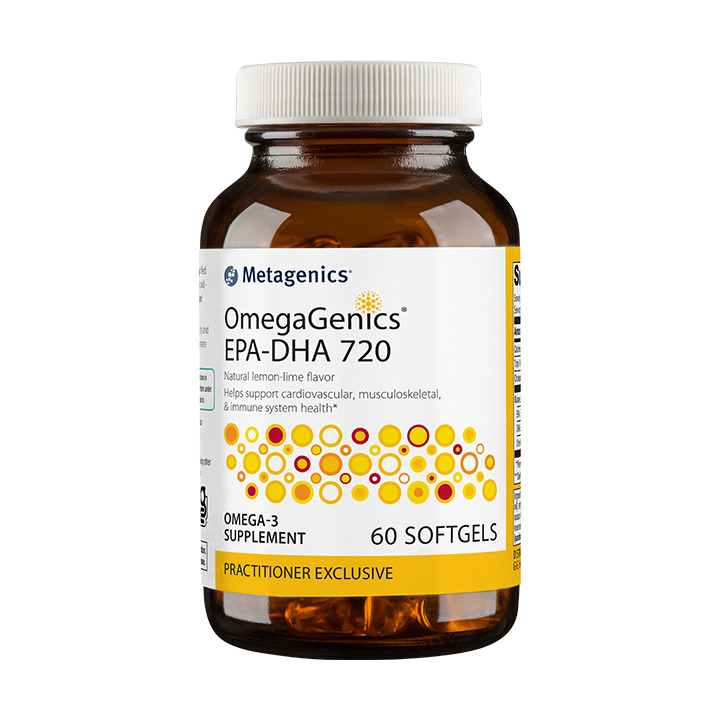
Omega 3's 60 tab
$34.00
Omega 3's 120 tab
$57.00
Omega 3's 240 tab
$100.00

Traumeel Ointment
$30.00

Traumeel Tablets
$30.00

Prosil Cream for Scars
$35.00
